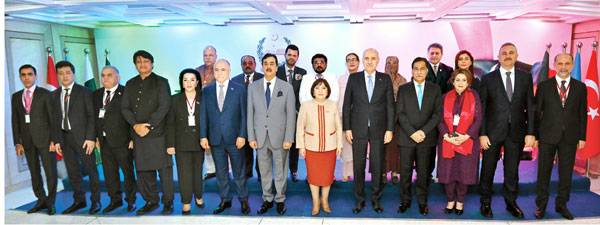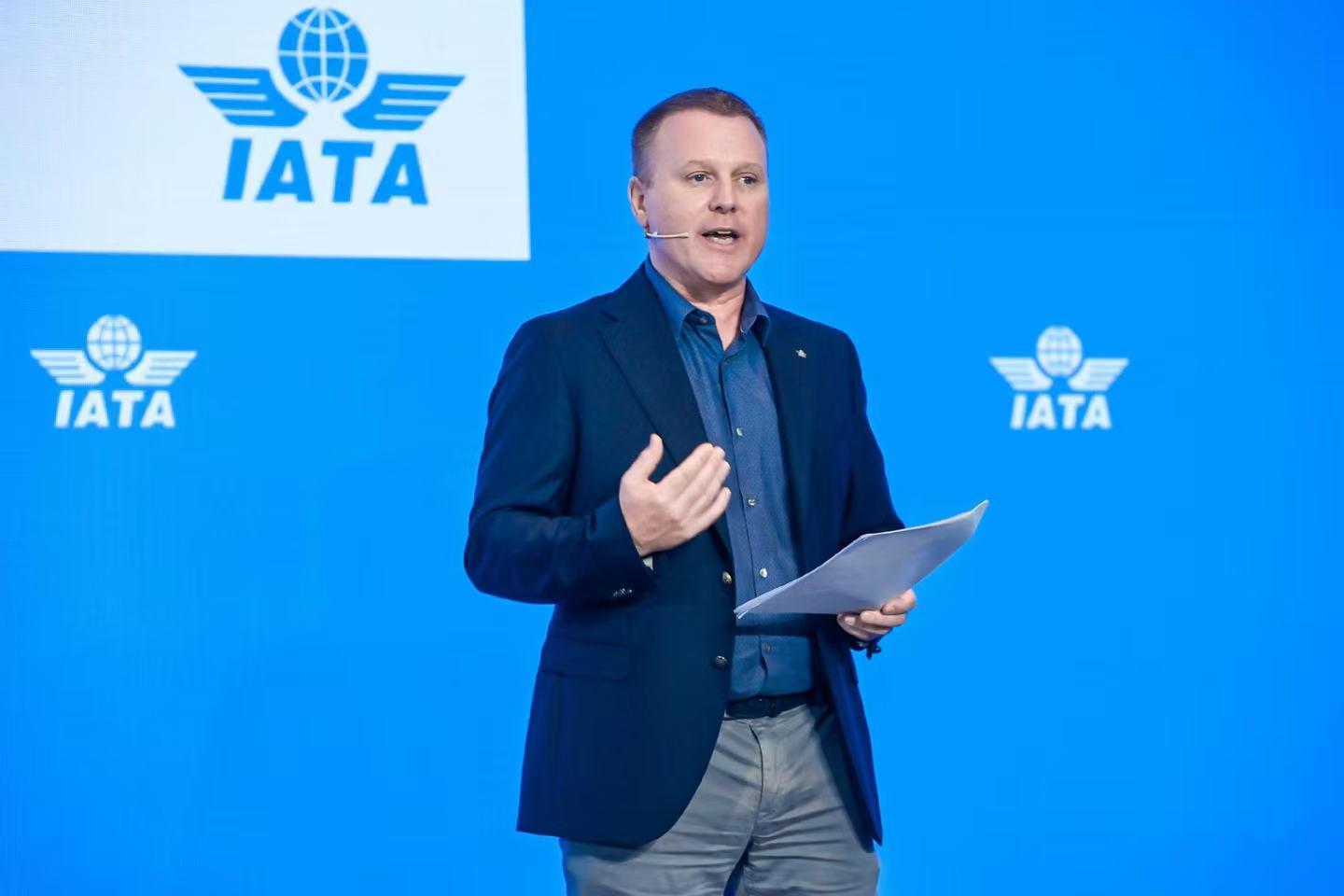ISLAMABAD – Speaker of the Grand National Assembly of Türkiye, Dr. Numan Kurtulmu, and Chairperson of the Milli Majlis of Azerbaijan, Mrs. Sahiba Gafarova, called on President Asif Ali Zardari at Aiwan-e-Sadr on Monday.
Sardar Ayaz Sadiq,…

ISLAMABAD – Speaker of the Grand National Assembly of Türkiye, Dr. Numan Kurtulmu, and Chairperson of the Milli Majlis of Azerbaijan, Mrs. Sahiba Gafarova, called on President Asif Ali Zardari at Aiwan-e-Sadr on Monday.
Sardar Ayaz Sadiq,…

ISLAMABAD – A government delegation called on Jamiat Ulema-e-Islam (Fazl) chief Maulana Fazlur Rehman at his residence yesterday to discuss the evolving political situation in Khyber Pakhtunkhwa.
The delegation from the Pakistan Muslim…


A new Australian research project is aiming to replace chemical fungicides with ultraviolet light in the fight against powdery mildew – a disease that can wipe out up to 30 per cent of strawberry crops each year.
The four-year initiative,…

When anesthesiologists lead the preoperative process, patients undergoing surgery for hip fractures – one of the leading causes of hospitalization in older adults – get to the operating room (OR) faster and have fewer complications,…

Translations: WSOC大会欢迎辞 – Mark Searle (pdf)
Ministers, ladies and gentlemen, colleagues, welcome to the IATA World Safety and Operations Conference.
A special welcome to our VIPs:
It is a pleasure to be in Xiamen, and I will start by thanking our host, Xiamen Airlines, for the warm welcome. This is the first time that WSOC is meeting in China. And it’s significant. China is an aviation powerhouse: one of the world’s largest markets for passenger services and air cargo. From the standpoint of safety and operations it presents several good examples to follow:
Working together—industry and the authorities—we are supporting China to get the most out of its significant investments in aviation. Our last tally showed that aviation contributes $250 billion to China’s GDP and supports 10.2 million jobs.
The improvements that we have achieved here demonstrate the important role of leadership, global standards and data analysis in making aviation the safest mode of transport. We must never let that slip, even in the face of evolving risks.
And make no mistake, airlines are operating in an increasingly conflict-ridden environment with grave consequences that have been all too clear recently.
Fortunately, such tragedies are rare, but they remain completely unacceptable. Civilian aircraft should never face such risks, even by accident.
And we cannot forget that, in addition to these well reported tragedies, airlines face and safely manage disruptions from geopolitical instability every day.
Even with established procedures, precautionary measures, restrictions and rerouting, confidence and connectivity is disrupted, journeys are longer, and costs and emissions are higher.
As leaders of global aviation’s safety and operations, we have a duty to manage today’s risks while anticipating and preparing for the risks of tomorrow. That is the “future proofing” that is referenced in the theme of this conference.
Future proofing begins with your leadership—the role of which is expressed in the IATA Safety Leadership Charter. The Charter now encompasses some 90% of global traffic. It points us towards a safety culture that focuses on the two fundamental tools we have to continue to improve safety and operations:
That, of course, is nothing new but we can and must do more with both.
Global standards are the bedrock of global aviation. We could not provide the connectivity that the world needs if each country had its own rules. We must avoid fragmentation by ensuring that the standards we have are continuously adapted to be fit for purpose.
Data has long helped us make critical decisions. We are capturing more data than ever before. And, with the capabilities of artificial intelligence, our ability to turn that data into critical insights that deliver more relevant and powerful outcomes continues to grow.
Global standards and data will recur throughout the WSOC program. In anticipation of that, I’d like to help set the scene with some reflections on how these apply to IATA’s work on some of our most critical topics.
Let’s start with global standards, where we have an important agenda of standards that either need to be defended, implemented, or both. Here are four priority examples:
Turning to data, the first point I want to emphasize is how our growing use of safety and operational information is transforming the industry. The flagship is the Global Aviation Data Management (GADM) program, which turns millions of data points from our members into actionable intelligence.
This is clearly demonstrated with Turbulence Aware – included in GADM – which enables pilots and dispatchers to share information on this safety risk. Participation in the program has grown by 25% over the last year. The fleet of 3,200 Turbulence Aware aircraft now includes new joiners Air France, Etihad and the SAS. And with each new contributing aircraft the better our ability to mitigate the risks of turbulence.
We also see the potential in SafetyIS which is so rich in-flight data from 217 airline contributors that we can now achieve predictive insight. For example, a spike in collision-avoidance alerts was identified at a major Latin American airport before it was noticed locally—allowing timely interventions that reduced risks and improved safety.
And lastly, we see the potential for data to transform the safety world in the rollout of risk-based IOSA. Data on risks guides how the audits are adapted to each airline. And, as a result, we are seeing more findings – some 8,000 corrective actions have already been identified and that number will grow.
I encourage all of you to make sure that your airline is getting the most out of this data revolution by joining two important communities:
Just before concluding my remarks, I have two additional points to those on leadership, data and standards. First, I would like to quickly report on the conclusions of the 42nd ICAO Assembly that took place earlier this month. We all know that ICAO is incredibly important for our industry as the ultimate keeper of global standards. That’s why every three years we make a major effort to ensure that the industry’s concerns are heard by the delegates and reflected in the Assembly’s conclusions.
In total this year, IATA submitted 14 papers, largely with very positive results. Some of the highlights include:
Including these in the final Assembly report is of great consequence. And our job over the next three years is to use the Assembly’s endorsements to implement the required changes.
Secondly the supply chain. Safety resilience also depends on the wider aviation system. And today, the supply chain is under strain.
The financial hit will exceed $11 billion this year, but the greater concern is safety: stretched fleets, delayed maintenance, and limited spares erode the buffers that protect operations.
IATA is responding with tools like MRO SmartHub, which allows members to have better visibility of the serviceable used aircraft parts available in the aftermarket and gives airlines real-time data to reduce parts delays and keep fleets flying safely.
Together with Oliver Wyman, we are releasing a new report at this conference. It calls for urgent action: expand capacity, promote fair competition and alternatives, and improve forecasting and data visibility, practical steps to restore resilience and protect aviation’s safety margins.
On that note, on behalf of the whole IATA team, I look forward to working with you and your teams to provide the leadership needed to improve safety and operations with relevant global standards and the power of data.
The challenges that we face are many and dynamic. But by keeping focused on leadership, standards and data, I know that we will be able to build an industry that is even safer, more efficient and fully able to provide the connectivity that the world needs to prosper.
I wish you all a productive and successful conference.

Infertility affects about one in six couples, and male factors account for roughly half of all cases-often because sperm don’t swim well. Researchers from the University of Osaka uncovered a key component of the “switch” that keeps…